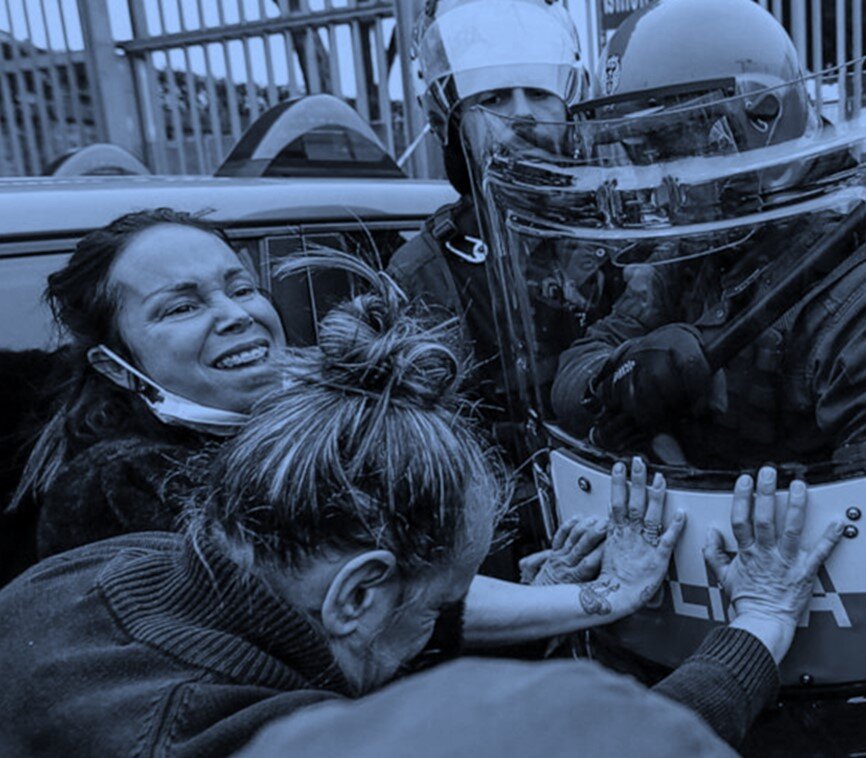
About PReP
Pandemic Research for the People or PReP is a crowd-funded effort from the Agroecology and Rural Economics Research Corps aimed at immediately getting research efforts underway to answer questions that will help communities around the world during the ongoing COVID-19 pandemic.
There’s a lot of great research being conducted right now on COVID-19, from its biomolecular characteristics to potential antivirals to epidemiologies at the broadest geographic scales. But much research remains handcuffed by a political economy going as far back as the origins of capitalism. Funding sources and political appointees gear a lot of otherwise terrific research toward saving the very systems of exploitation that help produce the problems to begin with.
Meanwhile, the needs of everyday people most immediately affected, in this case by a pandemic, are left unaddressed. Pandemic Research for the People will focus on answering questions around the people’s pandemic needs first.
Pandemic Research for the People will focus on answering questions around the people’s pandemic needs first.
Research Questions
We have six working groups lined up, some with immediate applications, others with the bigger picture in mind:
PReP Neighborhoods. What is the best way to form and safely operate neighborhood brigades checking up on people house-to-house while we all quarantine?
PReP Rural. What can be done to serve the medical needs of rural counties, some of which have no hospitals, ventilators, or even doctors? Can regenerative agriculture help rural communities rebuild local economies at a time when conventional supply lines and end buyers are locked up and more disconnected than ever?
PReP Supply Lines. How might we mass-produce and supply people with enough antivirals, medical equipment, and personal protective equipment to survive the outbreak? What is the broader political economy of global value chains?
PReP Outbreak Origins. How do pathogens such as COVID-19, Ebola, and Zika emerge out of neoliberal land grabs in the first place?
PReP Agroecologies. Could we plan agricultural landscapes that self-regulate in such a way that the deadliest pathogens are far less likely to emerge in the first place?
PReP Strategies. What strategies might we best pursue to break agribusiness and pharmaceutical control of governments and our political economy?

PReP Organizers
Rob Wallace
Rob Wallace, Ph.D., is a public health phylogeographer based in St Paul. His research has addressed the evolution and spread of avian and swine influenza, the agroeconomics of Ebola and Zika, and the evolution of infection life history in response to pharmaceuticals. Rob is co-author of Neoliberal Ebola: Modeling Disease Emergence from Finance to Forest and Farm and Farming Human Pathogens: Ecological Resilience and Evolutionary Process. He has consulted for the Food and Agriculture Organization of the United Nations and the Centers for Disease Control and Prevention.
Etant Dupain
Etant Dupain is a journalist, filmmaker, and community organizer. He has worked for international news media outlets, including Al Jazeera, TeleSur, BBC, CNN, Netflix, PBS, Vice, and the award-winning film “Where Did the Money Go?”. Etant founded an alternative media project in Haiti to enable citizen journalists to provide access to information in Haitian Creole for and about internally-displaced people, aid accountability, and politics. Throughout the years, Etant has organized factory workers, mediated donor aid, and advocated before U.S. Congress on behalf of displaced earthquake victims.
John Gulick
John Gulick is an environmental planner specializing in hazard mitigation and regenerative land management practices. In an earlier life he was a Sociology instructor and taught at numerous universities and colleges in California, China, Tennessee, Japan, South Korea, New York, and New Jersey. He did research on the urban ecological contradictions of container port development and the China-Russia-US strategic triangle under conditions of world-systemic crisis, among other subjects. He grew up in Billings, MT and since 2012 Brooklyn has been his home base — although he might move upstate or elsewhere sometime soon.
Tammi Jonas
Tammi Jonas is an ethical pig farmer and butcher at Jonai Farms and Meathsmiths outside Melbourne. She is also an agrarian intellectual at large working for a regenerative, ethical food system, with a focus on food sovereignty and global food security. She is the current President of the Australian Food Sovereignty Alliance.

PReP Contributors
Jasmine Arajuo
Serena Stein
Luca de Crescenzo
Luke Bergmann
Carol Dicks
Ben Gotschall
Jake Johnston
Meighen Lovelace
Amanda McKinney
Kevin Rhiney
Cora Roelofs
Deborah Wallace
Audrey Snyder
Jesse Bell
Sherri Dugger
Reginaldo Haslett-Marroquin
Taylor Keen
Elsa Ramon-Moody
Brian Rumsey
Alex Liebman
Tanya Kerrsen
Ryan Petteway
Colin Kloecker
Carolyn Betz
Suzi French
Joe Henry
Tom Manley
Kevin Rhiney
Laura Thomas
Meleiza Figueroa
John Choe
Alexis Bonogofsky
Graham Christensen
Jessica Gnad
Megan Holcomb
Patrick Kerrigan
Rodrick Wallace
Mike Weaver


